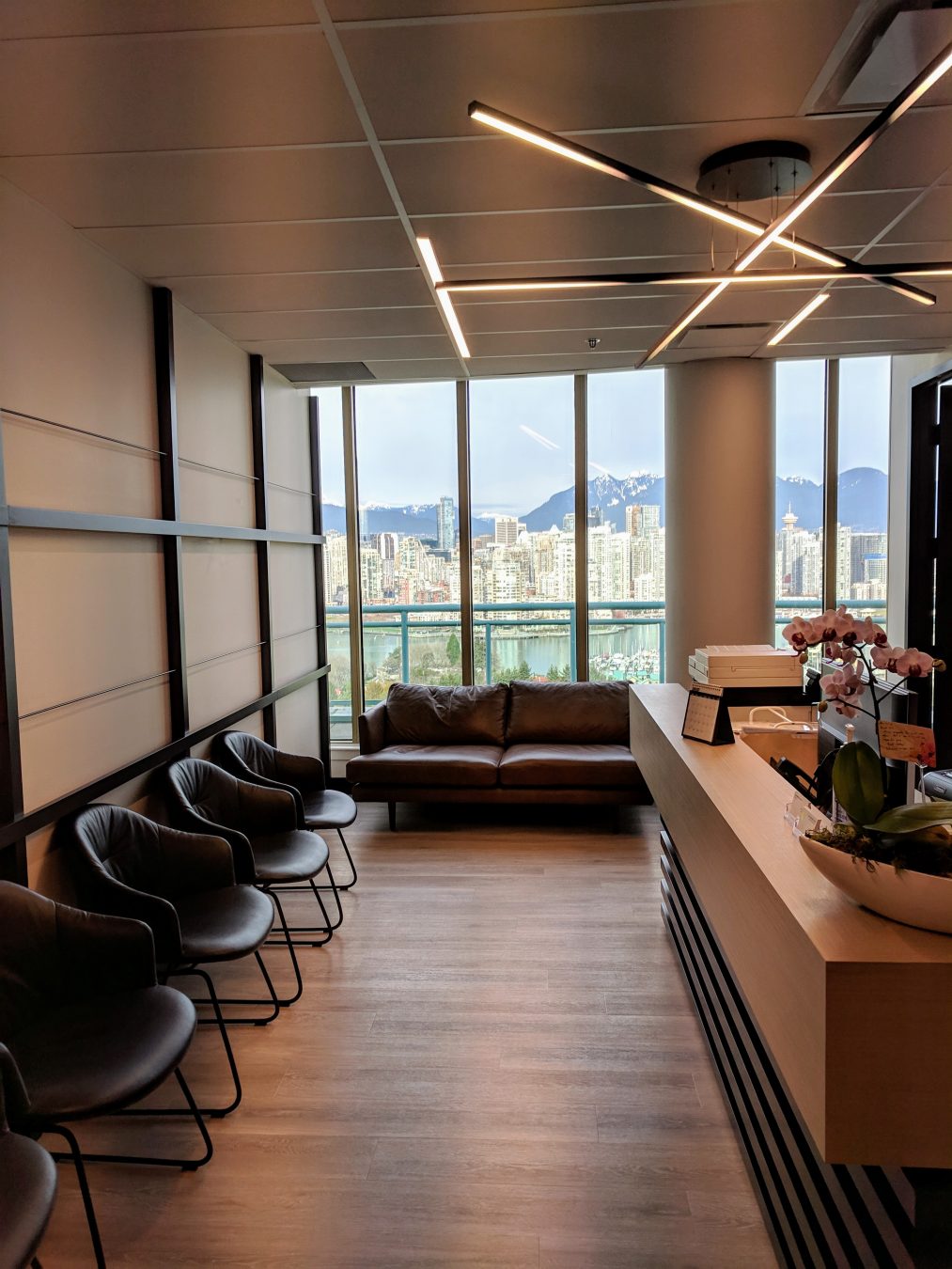“I wanted to create a really nice space with a really nice view for people,” shares cardiologist Dr. Eli Rosenberg at Pulse Cardiac Centre on West Broadway in Vancouver. “Where they want to be, where they want to exercise, and where they feel comfortable.”
Overlooking False Creek, the downtown core, and the North Shore Mountains, the private cardiac clinic shows off the city’s best angles. Rosenberg, its medical director, currently sits at his new desk, and behind him a winter fog is rolling in. “You should have been here two days ago,” he says, referencing an unbelievable view from when the sun was shining.
Rosenberg completed his doctor of medicine at the University of Toronto in 2004, going on to complete a cardiology program at the University of Western Ontario in London after that, and in 2013, graduating with a masters of business administration from Western’s Richard Ivey School of Business. It was during his first years as a medical practitioner that he realized most of his patients, whether being treated for conditions like coronary artery disease, angina, hypertrophic cardiomyopathy, or pre-requisites of heart failure like high blood pressure, high cholesterol, obesity, or diabetes, were not provided with the necessary access, and optimal conditions, for successful treatment and long-term recovery.
“I found that I had just a handful of minutes to quickly talk to patients about their diet,” he says. “To talk, to give them guidance on what their physical activity should look like. And it was really doing a disservice to how important it is.” It didn’t sit right with him. “I needed a team to help me,” he adds. “And so, I created one.”
After making the move to Vancouver with his wife and two children, Rosenberg opened Pulse Cardiac Centre, and subsequently the fitness and cardiac rehabilitation program Pulse Fit RX. Currently in Canada, heart disease is the second-leading cause of death for both men and women, with the Government of Canada reporting that over 51,000 deaths occurred from heart disease in 2016. Between 2012 and 2013, 2.4 million (that’s about one in 12) Canadians over the age of 20 were living with ischemic heart disease, also known as coronary heart disease.
“For the most part, it’s baby boomers, those are the ones now being diagnosed with risk factors for heart disease,” explains Rosenberg. “So high blood pressure, high cholesterol, obesity, diabetes, a family history of heart disease.” He says that his patients are equal parts men and women, with women being 1.3 times more prone to death from a heart attack between the ages of 45 and 74, according to the Government of Canada’s Data Blog. Whereas women often face protection from heart disease prior to menopause due to estrogen levels, men have a higher risk of heart attack earlier on in their lives. Thankfully, an estimated 90 per cent of premature heart diseases, as noted by Cardiac BC, can be prevented.
Access to Pulse Fit RX requires a referral from a family physician. Upon entry, each patient will undergo a bio-electric impedance body composition analysis, psychological screening, and treadmill stress test. A clinical exercise physiologist will prescribe a personalized program to follow five times a week (two or three times under cardiologist supervision here at Pulse, which has state-of-the-art cardio equipment, dumbbells, and a home gym machine; and two or three times on their own with a daily walk). “I tell my patients, every day it’s not raining I want them outside,” says Rosenberg confidently. There is also nutritional counselling and a weight management session with a registered dietitian every few months.
“The reason I developed this program is that the research shows that programs like this one lead to almost a 50 per cent reduction in heart attacks and death in patients who have a had a heart attack in the past,” says Rosenberg. Referring to programs throughout the United States, a Duke University study revealed patients suffering from coronary artery disease reduced their risk of death by 47 per cent after 36 sessions of a similar multi-disciplinary approach over a five-year period. “I’m really looking forward to helping patients get on this path,” adds Rosenberg, “and achieving those kinds of results.”
While many hospital programs are short, focusing on the few weeks or months following an episode, Pulse takes a holistic approach that aims for longevity—in an environment more conducive to recovery. “We’re moving away from making them feel as though they’re sick, by having them go to the hospital a couple times a week,” Rosenberg explains. “Instead, they feel healthy, they’re out in the real world.” He hopes to have as many as 150 patients by December 2019, with intentions to one day expand Pulse Cardiac Centre throughout the Lower Mainland.
“My overall mission is to help people reduce the risk of heart attacks and stroke, and death. That’s the number one,” Rosenberg says. “But also, to improve their quality of life, and in general, reclaim their health.”











